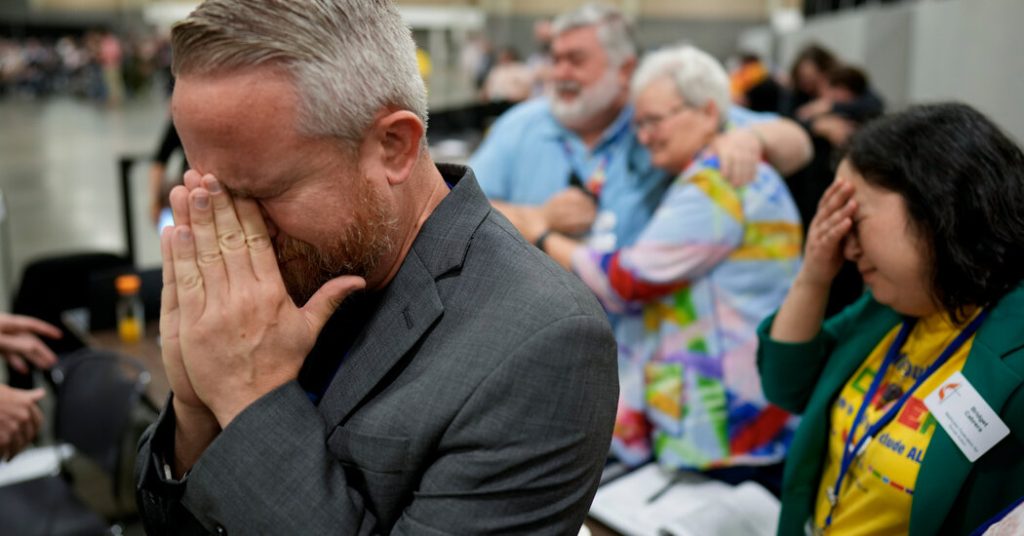The United Methodist Church recently lifted its longstanding ban on ordaining gay clergy. This shift in policy, which had already been put into practice and resulted in the departure of a quarter of its U.S. congregations, was formalized during a meeting of Methodist leaders in Charlotte, North Carolina. The decision to overturn the 40-year-old ban on “self-avowed practicing homosexuals” was made without debate and received overwhelming support. Delegates also voted to prevent local leaders from penalizing clergy or churches for either holding or refusing to hold same-sex weddings. Further votes on L.G.B.T.Q. inclusion within the church are expected before the meeting concludes.
The conference also approved the first phase of a “regionalization” plan to restructure the global denomination and grant different regions autonomy in adapting rules on issues such as sexuality. This move is intended to alleviate tensions between the more progressive American church and conservative factions internationally. Although the end of the ban on gay clergy applies to the entire global church, regionalization may primarily affect churches in the United States. The United Methodist Church, the second-largest Protestant denomination in the nation, has experienced a significant decline in membership in recent years, with numbers expected to further decrease due to accelerated departures.
Delegates at the meeting also voted to lift the ban on using United Methodist funds to “promote acceptance of homosexuality,” a change that was welcomed by ministries working with L.G.B.T.Q. individuals. Jan Lawrence of Reconciling Ministries Network, a group advocating for full inclusion in the church, expressed optimism about the outcome of the meetings and the positive atmosphere surrounding the decisions being made. The vote to end the ban on gay clergy and same-sex weddings follows years of turmoil within the denomination regarding sexuality, an issue that has led to debates and schisms in other Christian traditions and institutions.
Conservatives within the United Methodist Church had been troubled by what they perceived as a failure to enforce the bans on gay clergy and same-sex weddings. Following a contentious vote in 2019 to tighten these restrictions, many conservative congregations decided to depart the denomination in anticipation of the official loosening of such rules. The denomination experienced a significant decline as a result, with conservative congregations in states such as Texas joining the Global Methodist Church or becoming independent. The decision to allow congregations to leave over “reasons of conscience” and retain their property and assets contributed to the departure of many conservative congregations.
The mood on the floor of the meeting following the vote was jubilant, with individuals expressing joy and relief over the historic decision. Chet Jechura, who will soon be ordained after waiting five years, shared his tears of joy and profound relief upon learning of the church’s shift in policy. Rev. Laceye Warner, an ordained minister in the denomination and a professor at Duke Divinity School, described the moment as truly inclusive, marking a significant shift within the church. Delegates and observers gathered in a circle to sing a Methodist song that resonates with many L.G.T.B.Q. Christians, emphasizing the importance of inclusivity and community within the church.


